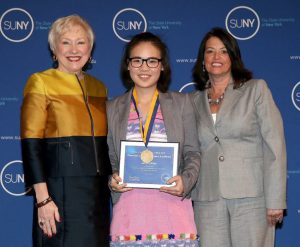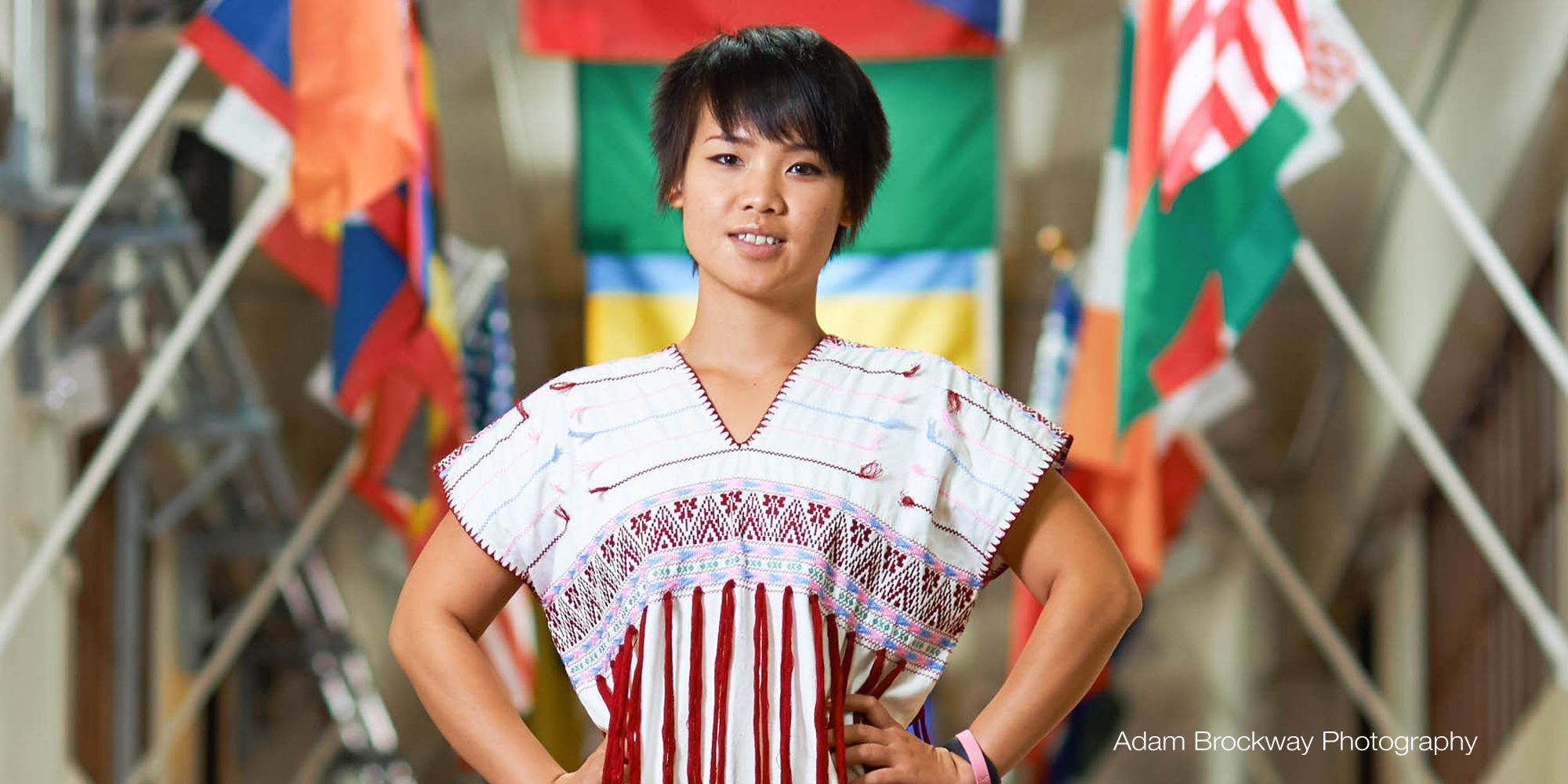When she walked across the stage of the Wildcat Field House in May 2015 to receive a master’s degree, Jenjira May Htoo was a long way from the refugee camp in Thailand where she was born.
A Karen refugee whose family came from the Karen borderlands between Thailand and what is now known as Myanmar, she spent her entire life up to the age of 18 in that camp before moving to the U.S. in 2007, to Utica, N.Y.
 Too old at age 18 to attend a public high school, she was placed in a program for refugee youth. After two months in the program, she began her first job, as a housekeeper at a hotel for Turning Stone Resort and Casino. She spent a year at the job, saving her money as she looked on to her next big goal: higher education. She enrolled at Mohawk Valley Community College, eventually becoming a full-time student, simultaneously juggling a full-time job as a certified nursing assistant.
Too old at age 18 to attend a public high school, she was placed in a program for refugee youth. After two months in the program, she began her first job, as a housekeeper at a hotel for Turning Stone Resort and Casino. She spent a year at the job, saving her money as she looked on to her next big goal: higher education. She enrolled at Mohawk Valley Community College, eventually becoming a full-time student, simultaneously juggling a full-time job as a certified nursing assistant.
“It was very challenging to learn content that is written in English, but it was worth it to take on those challenges and to grow.”
After becoming the first in her family to graduate college, receiving an associate’s degree in psychology, she came to SUNY Poly, graduating with a bachelor’s degree in in 2013 and, just two years later, with a Master of Science in Information Design and Technology.
During her final semester at SUNY Poly, May received SUNY’s highest honor, the Chancellor’s Award for Student Excellence, in recognition of her integration of academic excellence and leadership, as well as her service to the community. She put all her experiences to use during her time at SUNY Poly, through several campus events designed to spread awareness about refugee lives and struggles. She was also invited to be a guest lecturer at Webster University to share her perspectives on war and conflict in Burma.
“As a former refugee, I understood what refugees went through because we went through similar challenges in term of culture and language barriers. Studying psychology and sociology at college helped me learned cultures, societies, laws and regulations, and behaviors to become a bridge between Americans and refugees, as well as to be friendly and helpful to create a positive environment.”
For May, the Mohawk Valley Resource Center for Refugees served the purpose it does for so many refugees first arriving in Utica, a first stop. It offered a place for limited assistance for individuals and families as they took steps to start over with their new lives in America.
“I believe the initial help is very important and helpful to refugees as many of us became born again when we started over with our lives in a new environment. I went through that when I first arrived in the U.S, and just as I received assistance and support, I would like to get involved in helping my fellow refugees and share with them my personal experiences—how I adopted the new surroundings and handled problems I encountered.”
Today, May volunteers at the center, working as an on-call Karen interpreter from Compass Interpreters. She’s been doing it for more than two years, going to places throughout the area such as the Department of Social Services, hospitals, clinics, and schools to help break down the language barrier separating those still assimilating to the country from the services they need to survive and thrive here.
For May, it’s about giving back to the community.
“I was a refugee, and the refugee center is my community,” she says. “I also would like to encourage others, especially new arrivals or newcomers to be positive and strong because starting with new life in the U.S. was tough at the beginning to adopt new surroundings but things will get better in time.”
With three degrees and many remarkable experiences behind her, May is traveling throughout the U.S. before she pursues a career related to humanitarian work or at a non-profit organization.
